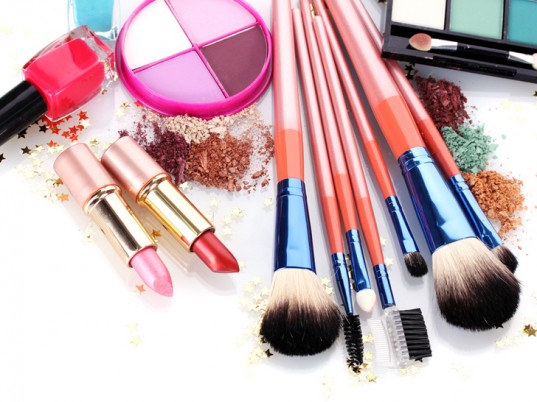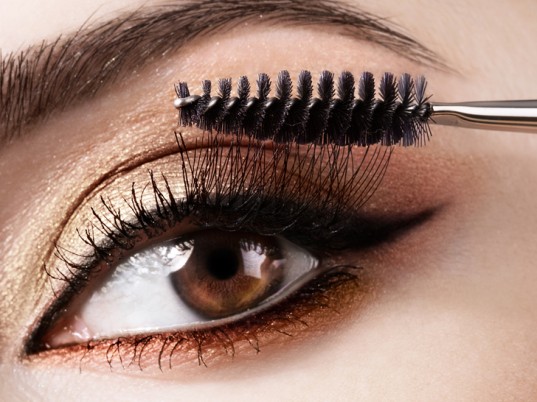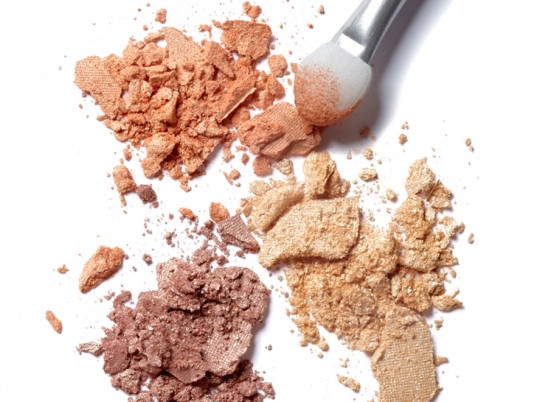Are “Natural” and “Organic” Cosmetics Necessarily Better for You?
Navigating the beauty industry isn’t unlike watching an episode of The Real Housewives of Orange County—you’re equal parts baffled and alarmed, there are flashes of self-loathing, and although you have a sneaking suspicion that it’s bad for you, you can’t help but breathlessly indulge. Throw in abarrage of mostly meaningless buzzwords like “natural” and “organic,” and it’s no wonder most of us are at sea.
Mia Davis, former organizing director of the Campaign for Safe Cosmetics and currently the safety lead at Beautycounter, is at the front line of a new revolution to replace toxic chemicals in cosmetic and personal-care products with healthier alternatives. Ecouterre spoke with Davis to learn why it’s perfectly legal for beauty firms to use ingredients linked to cancer, how to spot greenwashing in the beauty aisle, and what we can do to make sure our products are truly safe.
WHAT’S IN A NAME?
You were the organizing director of the Campaign for Safe Cosmetics for five years—tell us about the work you did.
The campaign is a coalition of nonprofit organizations that work to ensure our skin care and makeup are safe for long-term use. Seems like a no-brainer, I know. But right now, it is perfectly legal for cosmetics companies to use harmful chemicals linked to cancer, reproductive problems and other serious health impacts. The U.S. Food and Drug Administration doesn’t have the power to ensure that these products are safe before they hit the market. They can’t even do a recall of unsafe products.
The FDA doesn’t have the power to ensure that these products are safe before they hit the market.
Since “cosmetics” is a catchall term for virtually everything women, men, and kids use on their skin, this affects all of us. On average, women use more than 10 cosmetics a day, but everyone uses multiple products—even those of us that are pretty low-maintenance. So our exposure to cosmetics chemicals really adds up, and some of the chemicals are potent at extremely low doses (like hormone disruptors).
Luckily, the campaign has had a lot of success moving the market away from toxic chemicals. [It’s] working to pass common-sense federal policy that will empower the FDA to protect American consumers from these unnecessary toxic exposures.
Can you tell us a little about greenwashing in so-called natural and/or organic products?
Greenwashing is when companies use deceptive “green” marketing practices (basically, talking about how “green” or “eco-conscious” they are, but not really walking the walk).
Many consumers think that “green” products are always safe and nontoxic—it’s not necessarily the case.
Many consumers are left thinking that “green” products are always safe and nontoxic, which isn’t necessarily the case. After all, heavy metals are “natural.” And, on the other hand, there are natural ingredients that manufacturers buy from ingredient suppliers that come preloaded with preservatives, but since the preservatives aren’t an individual ingredient, they don’t always appear on ingredient labels.
For example, I could buy aloe vera with preservatives from a supplier, put it in my lotion, and not list the preservative on the product label. Some of the companies that claim they are natural and that they don’t use synthetic preservatives are really misleading the consumer. Not cool.
A MATTER OF SEMANTICS
It seems like there’s a division emerging in the natural beauty market. There’s green/organic/natural. And then there’s safe. What are your thoughts on this?
I don’t think that there’s a hard division; but as I indicated earlier, sometimes there is overlap between these terms, and sometimes, not so much. I think that many consumers understandably assume that natural equals safe, and safe equals natural.
Claims like “chemical-free” or “100 percent natural” are often false (nothing can be chemical-free since everything is made of chemicals.
Claims like “chemical-free” or “100 percent natural” are often false (nothing can be chemical-free since everything is made of chemicals), so try to look at little deeper before purchasing. If you’re interested in purchasing products with ingredients that are truly organic, look for the U.S. Department of Agriculture-certified organic seal—which means that 95 percent of the ingredients are organic—or NSF/ANSI 305 certification—at least 70 percent of the ingredients are organic. The Natural Products Association certification indicates that you’re getting natural ingredients, and this standard also takes into account safety.
Folks should become avid label-readers and work to avoid some of the most concerning chemicals found in cosmetics, like triclosan in hand soaps, parabens in lotion and shampoo, and undisclosed “fragrance” in a myriad of products.
“Fragrance” can be dozens or even hundreds of secret ingredients, some of which are hormone disruptors.
“Fragrance” can be dozens or even hundreds of secret ingredients, some of which are hormone disruptors (like phthalates and musks), so be sure to choose fragranced products from companies that disclose all of their fragrance ingredients.
What are you working on now?
I’m working with a team of social entrepreneurs to launch Beautycounter, coming winter 2013. Beautycounter will have chic, effective, and safe skincare and makeup products.
I’m excited to be working on a solution to this environmental and public health issue—we need more companies out there offering safe products that people actually want to use. Beautycounter will empower women and challenge the status quo. People can learn more and stay in the loop at www.beautycounter.com.


